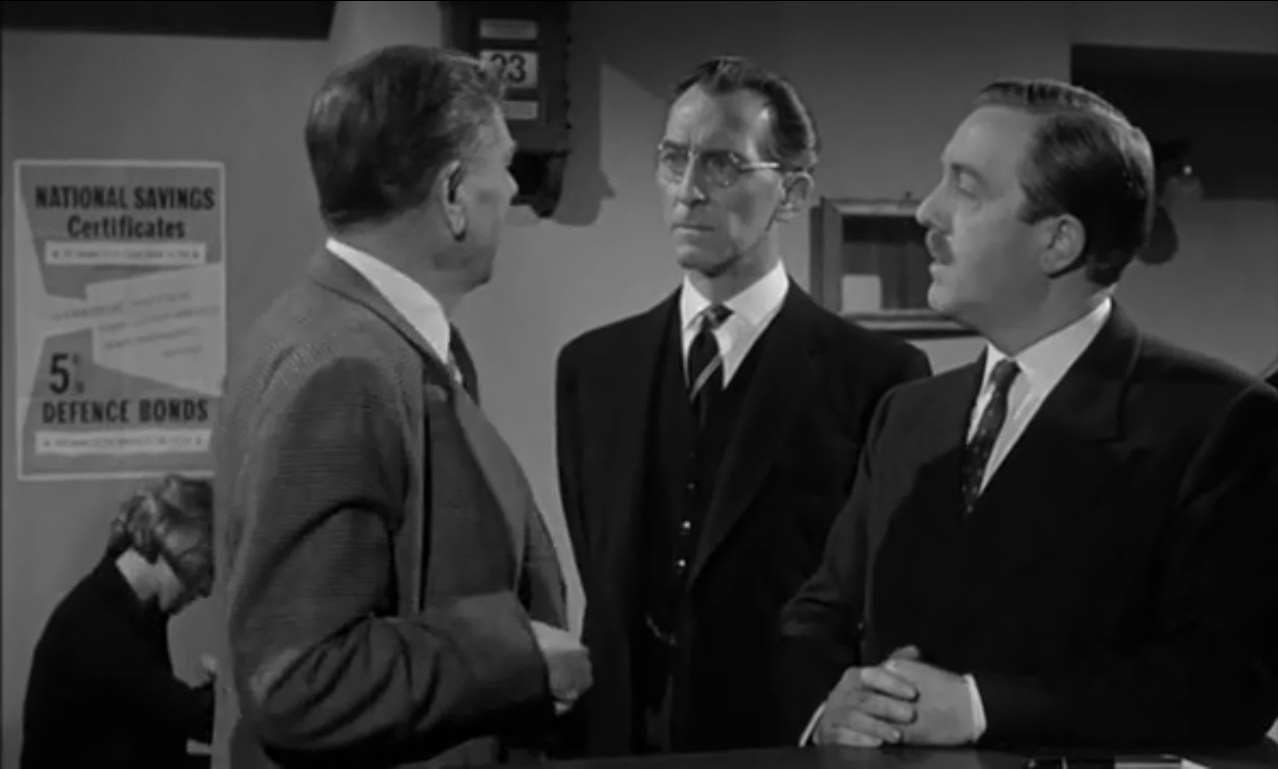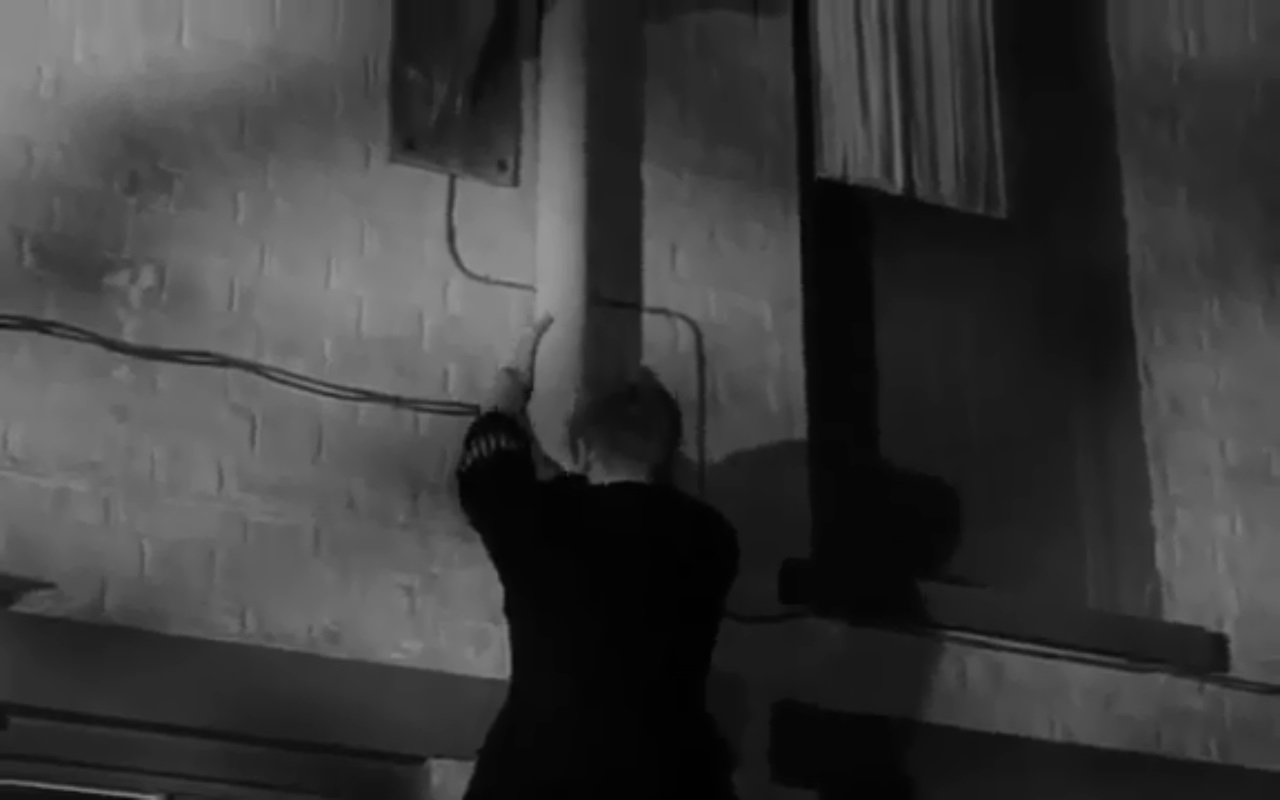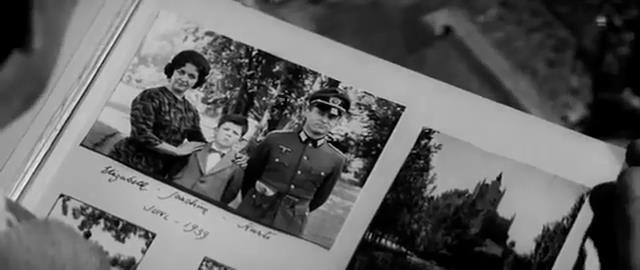Cash on Demand

A capital
rendering of Dickens in terms of a provincial bank and its manager at
Christmastide. “I want bank robberies to be
smoother, more sociable,” says the Spirit of Christmas, a jolly old
homicidal thief in the night. “You know,”
echoing Charles Foster Kane to his guardian, “I think banks are rather
fun.”
Bosley Crowther of the New
York Times was entirely oblivious and inexplicably charmed, “neat and
unpretentious” was his assessment. Time Out likewise, “small-scale
crime drama”. TV Guide too, “decent melodrama”. Britmovie as
well, “one of Hammer’s best non-horror subjects.”
Playback

Edgar Wallace on Carmen, or the P.C. and the Münchnerin with a
husband in the jewelry trade.
All a matter of
the last few moments before sentence is passed. A prominent
reflection of Losey’s Blind Date
will likely be observed in places amidst the direction.
The Man Who Finally Died

A certain
Deutsch, Kurt, Wehrmacht officer thought dead in the
war then a prisoner escaped. “You see people
eating too much, driving too fast, talking too loudly, and you’re fooled. Take it from me that beneath the shining chromium and the
neon lights, the pain and the sickness are still there.”
“Er, it
could have been worse, I suppose.”
“Oh, in
what way?”
“Er, you
could have won the war.” A key analysis of The Third Man (dir. Carol Reed). “Musician are you, Newman?”
“Yeah, a
composer.”
“Written
anything?”
“Er, one or
two tunes. My big work’s to come.”
“What’s
that?”
“Mein Kampf.
I’m setting it to music.” The son no longer Deutsch, living in
England since childhood, summoned to Königsbaden. “Never hit a policeman, Joe. It’s
illegal.” A certain Dr. von Brecht, a certain Prof. Schiller. Cf. Clément’s The Day and the Hour for the dénouement.
Britmovie, “routine”. Halliwell’s Film Guide, “a
convoluted plot which might have been more pacily
developed and better explained.”